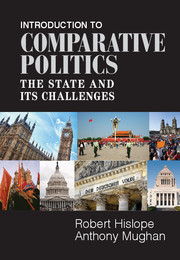10 - Conclusion
Published online by Cambridge University Press: 05 June 2012
Summary
The state stands at the apex of political power in the modern world. States are the primary actors in global affairs, and the system of state sovereignty forms the foundation of the international order. International organizations like the UN, the EU, the World Bank, NATO, and Interpol are organized and run by, and for, states. No other institution in any society claims and maintains a concentrated near-monopoly of the means of violence like the state. Of all the forms of social organization created by humankind, none has done so much good for so many people. Equally, none has repressed and murdered more people than the state. Military competition drove the historical evolution of the state, and this pattern continues today. In fact, even though states already possess enough firepower to destroy the world several times over, the global arms trade is a thriving $50–60 billion dollar industry. Military expenditures of states amounted to more than $1.5 trillion in 2009, with sixteen of the nineteen states in the G20 increasing their spending in real terms in that year. The accumulation of military power by one state, the United States, is a wholly unprecedented phenomenon in world history. With its 700-plus military installations in more than 130 countries, there is no place on the planet where the United States cannot project its military power.
Of course, not all states are equal. There is considerable variation across them in terms of wealth, military prowess, regulatory capacity, legitimacy, and general effectiveness. Still, even weak states enjoy a seat at the UN and the rights, privileges, and obligations associated with the internationally recognized claim of supreme sovereignty over a given territory. This means, above all, legal equality with other states and the right to claim noninterference from others in domestic affairs.
- Type
- Chapter
- Information
- Introduction to Comparative PoliticsThe State and its Challenges, pp. 295 - 304Publisher: Cambridge University PressPrint publication year: 2012



